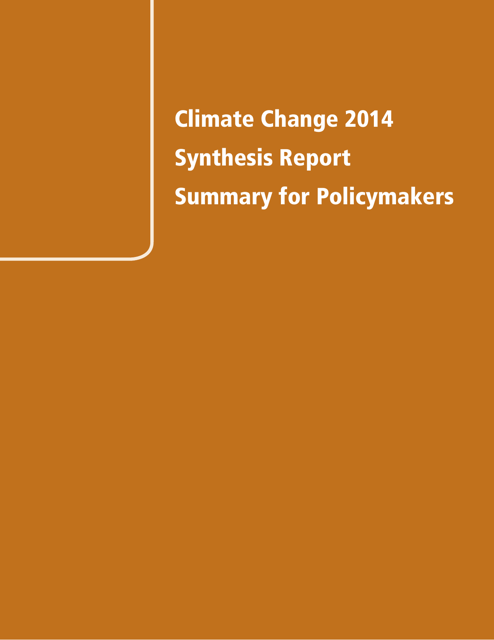Climate Change 2014 Synthesis Report: Summary for Policymakers - the United Nations Intergovernmental Panel on Climate Change
The Climate Change 2014 Synthesis Report: Summary for Policymakers by the United Nations Intergovernmental Panel on Climate Change is a comprehensive document that provides an overview and synthesis of the latest scientific information on climate change. It is intended to inform and guide policymakers in making decisions and taking action to address the challenges of climate change.
The United Nations Intergovernmental Panel on Climate Change (IPCC) files the Climate Change 2014 Synthesis Report: Summary for Policymakers.
FAQ
Q: What is the Climate Change 2014 Synthesis Report?
A: The Climate Change 2014 Synthesis Report is a summary document produced by the United Nations Intergovernmental Panel on Climate Change (IPCC).
Q: What is the purpose of the Synthesis Report?
A: The purpose of the Synthesis Report is to provide policymakers with a summary of the current scientific understanding of climate change.
Q: What is the IPCC?
A: The IPCC is a scientific body established by the United Nations to assess the scientific, technical, and socio-economic information relevant to understanding climate change.
Q: Why is climate change a concern?
A: Climate change is a concern because it is causing significant environmental, social, and economic impacts. It is increasing the frequency and intensity of extreme weather events, threatening ecosystems and biodiversity, and affecting food and water security.
Q: What are some key findings of the Synthesis Report?
A: Some key findings of the Synthesis Report include the fact that human activities are the dominant cause of global warming, that impacts of climate change are already being observed, and that urgent action is needed to reduce greenhouse gas emissions.
Q: What are greenhouse gases?
A: Greenhouse gases are gases that trap heat in the Earth's atmosphere. The main greenhouse gases are carbon dioxide, methane, and nitrous oxide, which are released into the atmosphere through human activities such as burning fossil fuels and deforestation.
Q: What can be done to address climate change?
A: To address climate change, it is necessary to reduce greenhouse gas emissions, increase the use of renewable energy sources, improve energy efficiency, and adapt to the impacts of climate change through measures such as building resilience and implementing sustainable land and water management practices.

































































